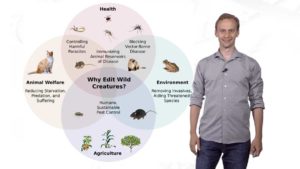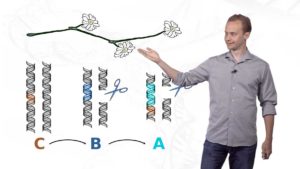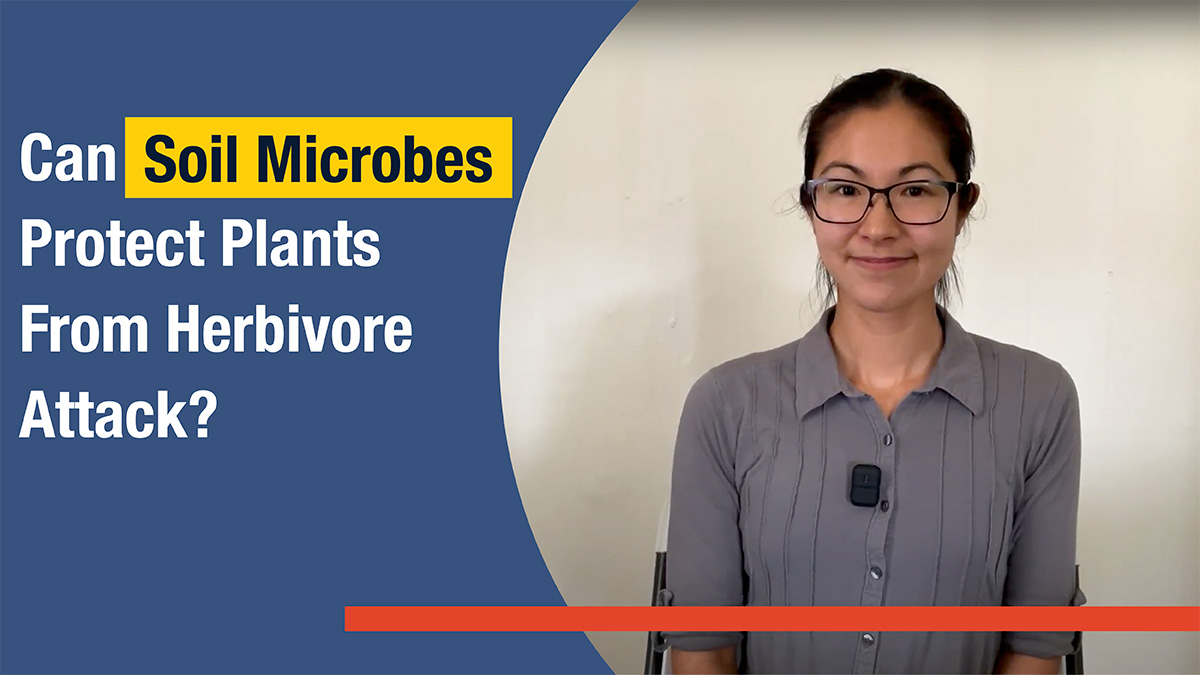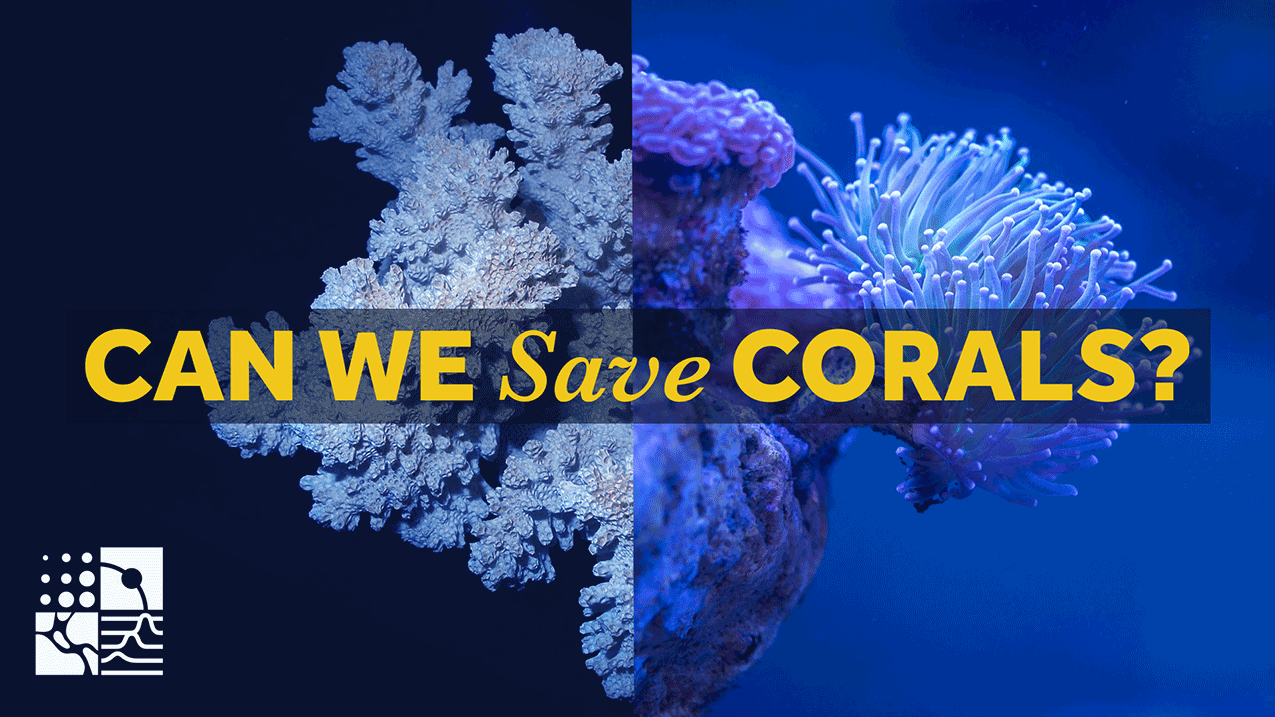Talk Overview
Evolution has selected wild organisms to be extremely well adapted to their environment. Because most genetic changes introduced by humans divert the resources of the organism to benefit humans, such mutations are typically eliminated by natural selection in the ancestral habitat. In his first talk, Dr. Kevin Esvelt explains how self-propagating CRISPR-based gene drives can be used to spread genetic alterations through wild populations, potentially impacting all organisms of the target species. Gene drives could be used to benefit public health, the environment, agriculture, and animal well-being. However, real-world use may incur ecological risks, and even research involving self-propagating gene drive systems may risk public trust in science and governance given the possibility of accidental spread. Esvelt explains how to minimize risk and discusses the importance of engaging communities in planning any projects which may affect them.
Esvelt’s second talk focuses on strategies to allow for the safe implementation of localized gene drive technologies that do not spread indefinitely. Daisy drive systems are made up of multiple elements connected like a daisy chain such that each causes the next to be preferentially inherited. They are designed to be self-exhausting by losing elements with each generation, thereby limiting spread. This technique has multiple applications such as removing an invasive species from one area without impacting the same species in its native habitat. Esvelt explains that daisy-drive stability might be tested in a species such as C. elegans where hundreds of generations can be grown in a short period of time. His lab is also developing technologies to reverse any unwanted genetic changes that might be introduced via gene drive. Once again, Esvelt emphasizes the importance of community input into any gene alteration projects. Although it does not currently involve gene drive, he uses the “Mice Against Ticks” project that seeks to prevent tick-borne diseases on the islands of Nantucket and Martha’s Vineyard as an example.
Speaker Bio
Kevin Esvelt

Kevin Esvelt received his B.S. in Chemistry and Biology from Harvey Mudd College and his Ph.D. from Harvard University. As a Technology Development Fellow of the Wyss Institute, he worked with Dr. George Church at Harvard Medical School. He helped to develop CRISPR as a genome editing tool and was the first to identify the… Continue Reading











Leave a Reply